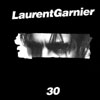 For the most part, full-length techno albums suffer from two fatalflaws. They either sound like a slapped-together 12" singles collectionor they shed harsh light on the weaknesses of the producer outside oftheir 4/4 forte. Reissued this year, 30,Garnier's 1997 artist album, dodges both bullets with a balancedassortment of dancefloor killers and bedroom groovers. This statementshould come as no surprise to fans of his F Communications label, whichboasts countless releases from this former Hacienda DJ along with otheracclaimed dance acts such as Llorca, Mr. Oizo, and Jori Hulkkonen. Thestorming yet funky "Flashback" recalls acid house-era Psychic TV withits dominating bassline and repetitive echoey vocals. "Sweet Mellow D"has a certain Detroit charm, indulging in nearly four minutes of TB-303bass and syrupy pads before the kick pattern emerges, only to drop inand out on Garnier's whim. On "The Hoe" Garnier lets a little humorinto the mix, a quality that is uncharacteristic of most technoproducers. What makes this album worthwhile is the inclusion of theclassic "Crispy Bacon," an acidic warehouse stomper that both technoenthusiasts and DJ newbies alike should have in their crates. As Mutecontinues to reissue albums from industrial and experimental pioneers,I find it refreshing to see the same treatment being given to techno.
For the most part, full-length techno albums suffer from two fatalflaws. They either sound like a slapped-together 12" singles collectionor they shed harsh light on the weaknesses of the producer outside oftheir 4/4 forte. Reissued this year, 30,Garnier's 1997 artist album, dodges both bullets with a balancedassortment of dancefloor killers and bedroom groovers. This statementshould come as no surprise to fans of his F Communications label, whichboasts countless releases from this former Hacienda DJ along with otheracclaimed dance acts such as Llorca, Mr. Oizo, and Jori Hulkkonen. Thestorming yet funky "Flashback" recalls acid house-era Psychic TV withits dominating bassline and repetitive echoey vocals. "Sweet Mellow D"has a certain Detroit charm, indulging in nearly four minutes of TB-303bass and syrupy pads before the kick pattern emerges, only to drop inand out on Garnier's whim. On "The Hoe" Garnier lets a little humorinto the mix, a quality that is uncharacteristic of most technoproducers. What makes this album worthwhile is the inclusion of theclassic "Crispy Bacon," an acidic warehouse stomper that both technoenthusiasts and DJ newbies alike should have in their crates. As Mutecontinues to reissue albums from industrial and experimental pioneers,I find it refreshing to see the same treatment being given to techno.  For the most part, full-length techno albums suffer from two fatalflaws. They either sound like a slapped-together 12" singles collectionor they shed harsh light on the weaknesses of the producer outside oftheir 4/4 forte. Reissued this year, 30,Garnier's 1997 artist album, dodges both bullets with a balancedassortment of dancefloor killers and bedroom groovers. This statementshould come as no surprise to fans of his F Communications label, whichboasts countless releases from this former Hacienda DJ along with otheracclaimed dance acts such as Llorca, Mr. Oizo, and Jori Hulkkonen. Thestorming yet funky "Flashback" recalls acid house-era Psychic TV withits dominating bassline and repetitive echoey vocals. "Sweet Mellow D"has a certain Detroit charm, indulging in nearly four minutes of TB-303bass and syrupy pads before the kick pattern emerges, only to drop inand out on Garnier's whim. On "The Hoe" Garnier lets a little humorinto the mix, a quality that is uncharacteristic of most technoproducers. What makes this album worthwhile is the inclusion of theclassic "Crispy Bacon," an acidic warehouse stomper that both technoenthusiasts and DJ newbies alike should have in their crates. As Mutecontinues to reissue albums from industrial and experimental pioneers,I find it refreshing to see the same treatment being given to techno.
For the most part, full-length techno albums suffer from two fatalflaws. They either sound like a slapped-together 12" singles collectionor they shed harsh light on the weaknesses of the producer outside oftheir 4/4 forte. Reissued this year, 30,Garnier's 1997 artist album, dodges both bullets with a balancedassortment of dancefloor killers and bedroom groovers. This statementshould come as no surprise to fans of his F Communications label, whichboasts countless releases from this former Hacienda DJ along with otheracclaimed dance acts such as Llorca, Mr. Oizo, and Jori Hulkkonen. Thestorming yet funky "Flashback" recalls acid house-era Psychic TV withits dominating bassline and repetitive echoey vocals. "Sweet Mellow D"has a certain Detroit charm, indulging in nearly four minutes of TB-303bass and syrupy pads before the kick pattern emerges, only to drop inand out on Garnier's whim. On "The Hoe" Garnier lets a little humorinto the mix, a quality that is uncharacteristic of most technoproducers. What makes this album worthwhile is the inclusion of theclassic "Crispy Bacon," an acidic warehouse stomper that both technoenthusiasts and DJ newbies alike should have in their crates. As Mutecontinues to reissue albums from industrial and experimental pioneers,I find it refreshing to see the same treatment being given to techno. 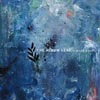 Instrumental music is often the realm of expression that succeeds wherewords fail. The use of purely instrumental music, when usedintelligently and passionately, can convey body language, emotions, andintensity in a more direct way than words could. This music bypassesthe prejudices, associations, and limitations of language, skipping theanalytical brain entirely and instead appealing to the heart, lookingto provoke a physical reaction that will reproduce the experience forthe listener. This is why instrumental music is so adept (and sofrequently used) to capture the feelings produced by vast geographiesand scenery. It succeeds where complex explorations of soil samples andgeological studies on comparative ecosystems would be woefullyunhelpful. Recorded at the Mosfellsbaer studio in Iceland at the inviteof Sigur R?s and M?m, In a Safe Placeseems to bear the starry eyed wonder of a first time visitor to alandscape radically different from any previous experiences. Theopening track, "Window," unfolds with the bright, melodic sounds of anorgan, keening in a deeply reverential manner, implying endless wonderthe sights that are filling this new environment. The album is a mix ofcomfortable rock with crisp, electronic additions that cannot help butbe evocative of a kind of pastoral peacefulness. "Another Day" churnsand rolls with synthesized percussion along infinitely deep chimes ofthe organ, which sustain for a moment before dissipating like warmbreath giving way to chilly air. There is a crystalline starkness tothe song, however it comes off neither distant nor aloof, but as apleasant journey when the song begins its crescendo and strings swellbehind it, giving added weight to the delicate arrangement. Immediatelyfollowing is "Streamside," rooted in a dexterous turn with the acousticguitar and the accordion, the track brings the ethereal strains of"Another Day" back to earth, and elemental solace, like a warming fire.The Album Leaf (which is entirely the work of Jimmy LaValle) along withguest vocalists Jon Thor Birgisson (Sigur R?s) and Pall Jenkins (BlackHeart Procession), occasionally segues into songs with vocals in aneffort to make the journey more palatable, perhaps. These songs, whilegood, are lacking the undistilled emotion pronounced in theinstrumentals. The possible exception being the coda to "Moss MountainTown," which features a chorus of singers in the distance, a wonderfuladdition and fitting ending to the album. In a Safe Place is adelightful postcard from an exotic land, a love letter and aninvitation, that is at times affecting and inspiring without fallinginto bashful clich?s.
Instrumental music is often the realm of expression that succeeds wherewords fail. The use of purely instrumental music, when usedintelligently and passionately, can convey body language, emotions, andintensity in a more direct way than words could. This music bypassesthe prejudices, associations, and limitations of language, skipping theanalytical brain entirely and instead appealing to the heart, lookingto provoke a physical reaction that will reproduce the experience forthe listener. This is why instrumental music is so adept (and sofrequently used) to capture the feelings produced by vast geographiesand scenery. It succeeds where complex explorations of soil samples andgeological studies on comparative ecosystems would be woefullyunhelpful. Recorded at the Mosfellsbaer studio in Iceland at the inviteof Sigur R?s and M?m, In a Safe Placeseems to bear the starry eyed wonder of a first time visitor to alandscape radically different from any previous experiences. Theopening track, "Window," unfolds with the bright, melodic sounds of anorgan, keening in a deeply reverential manner, implying endless wonderthe sights that are filling this new environment. The album is a mix ofcomfortable rock with crisp, electronic additions that cannot help butbe evocative of a kind of pastoral peacefulness. "Another Day" churnsand rolls with synthesized percussion along infinitely deep chimes ofthe organ, which sustain for a moment before dissipating like warmbreath giving way to chilly air. There is a crystalline starkness tothe song, however it comes off neither distant nor aloof, but as apleasant journey when the song begins its crescendo and strings swellbehind it, giving added weight to the delicate arrangement. Immediatelyfollowing is "Streamside," rooted in a dexterous turn with the acousticguitar and the accordion, the track brings the ethereal strains of"Another Day" back to earth, and elemental solace, like a warming fire.The Album Leaf (which is entirely the work of Jimmy LaValle) along withguest vocalists Jon Thor Birgisson (Sigur R?s) and Pall Jenkins (BlackHeart Procession), occasionally segues into songs with vocals in aneffort to make the journey more palatable, perhaps. These songs, whilegood, are lacking the undistilled emotion pronounced in theinstrumentals. The possible exception being the coda to "Moss MountainTown," which features a chorus of singers in the distance, a wonderfuladdition and fitting ending to the album. In a Safe Place is adelightful postcard from an exotic land, a love letter and aninvitation, that is at times affecting and inspiring without fallinginto bashful clich?s. 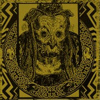 In 1988, Steven Stapleton's United Dairies label released this one-offalbum by a trio consisting of Metgumbnerbone members Sean Breadin (akaB. Sedayne), Matt Watson and Richard Rupenus (also of The NewBlockaders). A limited quantity was pressed and, for the most part, itwas overlooked and fell into an abyss of collector-talk and rumors.Thanks to the reintroduction by the new label Psychedelic Pig, and theremastering job by Colin Potter, Masstishaddhu's Shekinahcan be heard again and appreciated for its insanely mystical tone andoccult allure. Everything about this release suggests esoterichappenings: the title, the cover, and the music all recall bloodiedaltars, unfathomable rituals, and mystical learning. The low andbuzzing drone of secret instruments underscores a lava flow of nonsensechants, violins, grunts, and various percussion. The pulse of thesesounds is simultaneously warm and frigid as though through the musicthe difference between life and death was seperated. Whatever wordsmight be spoken during this procession of yearning melodies and utterlyethereal voices is perhaps best left for the Gods. The word "shekinah"is Hebrew and translates roughly as "the presence of God" or as thatlight which is visible in the presence of God (as God appeared to Mosesand others, for example). The title is highly appropriate as the twotwenty-plus minute tracks often shine in an inexplicable way. The musicburns slowly and washes the space it occupies with sweet and smokeyincense, but the interplay of the voices and instruments emanates abright and insistent energy that escapes the world of words and canonly be described, with caution, as a feeling or a presence. Whateversecrets the music holds, they are a fountain of spiritual beauty andunknowable terror. Though the album might burn brightly, it alsoconceals an old and patient terror. Listening to this record at nightgave me chills more than just once. It's as though the character of therecord changed with my dispositions: if fear was in my heart, then itwas fear Masstishaddhu played for me. If I were happy, then the joy ofthe Gods shone down upon me and relaxed every fiber of my being.Releases like this feel incredibly special not just because the musicis unique and excellent, but because the entire package works welltogether. For the first time in a long while, I wanted to sit down andgo over the titles of the songs, the artwork, and childlike rhyme thataccompanied the music. I was completely absorbed in the entirety of thealbum from beginning to end and there were times at work or when I wasout and about with friends that I found myself hungering to listen tothe music . Unfortunately, only 500 copies of this release were pressedby Psychedelic Pig, making it another far too limited release of thisalbum. While it's completely sold out from Pyschedelic Pig, there arecopies still available at various shops around the world and Internet.
In 1988, Steven Stapleton's United Dairies label released this one-offalbum by a trio consisting of Metgumbnerbone members Sean Breadin (akaB. Sedayne), Matt Watson and Richard Rupenus (also of The NewBlockaders). A limited quantity was pressed and, for the most part, itwas overlooked and fell into an abyss of collector-talk and rumors.Thanks to the reintroduction by the new label Psychedelic Pig, and theremastering job by Colin Potter, Masstishaddhu's Shekinahcan be heard again and appreciated for its insanely mystical tone andoccult allure. Everything about this release suggests esoterichappenings: the title, the cover, and the music all recall bloodiedaltars, unfathomable rituals, and mystical learning. The low andbuzzing drone of secret instruments underscores a lava flow of nonsensechants, violins, grunts, and various percussion. The pulse of thesesounds is simultaneously warm and frigid as though through the musicthe difference between life and death was seperated. Whatever wordsmight be spoken during this procession of yearning melodies and utterlyethereal voices is perhaps best left for the Gods. The word "shekinah"is Hebrew and translates roughly as "the presence of God" or as thatlight which is visible in the presence of God (as God appeared to Mosesand others, for example). The title is highly appropriate as the twotwenty-plus minute tracks often shine in an inexplicable way. The musicburns slowly and washes the space it occupies with sweet and smokeyincense, but the interplay of the voices and instruments emanates abright and insistent energy that escapes the world of words and canonly be described, with caution, as a feeling or a presence. Whateversecrets the music holds, they are a fountain of spiritual beauty andunknowable terror. Though the album might burn brightly, it alsoconceals an old and patient terror. Listening to this record at nightgave me chills more than just once. It's as though the character of therecord changed with my dispositions: if fear was in my heart, then itwas fear Masstishaddhu played for me. If I were happy, then the joy ofthe Gods shone down upon me and relaxed every fiber of my being.Releases like this feel incredibly special not just because the musicis unique and excellent, but because the entire package works welltogether. For the first time in a long while, I wanted to sit down andgo over the titles of the songs, the artwork, and childlike rhyme thataccompanied the music. I was completely absorbed in the entirety of thealbum from beginning to end and there were times at work or when I wasout and about with friends that I found myself hungering to listen tothe music . Unfortunately, only 500 copies of this release were pressedby Psychedelic Pig, making it another far too limited release of thisalbum. While it's completely sold out from Pyschedelic Pig, there arecopies still available at various shops around the world and Internet.  Try as I might, I can never come to an understanding of the fascination so many have with Christian Fennesz. His 2001 record, Endless Summer,never touched me in the same way it seemed to touch numerous criticsand fans; even repeated listens could not cure the inertness I feltwhile listening to the music. Put simply: I've always found Fennesz'salbums overrated and tame. That's why it came as a surprise to find Veniceimpressing me on some levels. As a whole the record drags on just asmuch as its predecessors have, but there are a few songs on the albumthat come out of left field and strike me to a degree that I couldnever have expected. The opener, "Rivers of Sand," is a pulsating workfull of struggling chords and bereft melodies that disappearmysteriously only emerge triumphantly on the other end of death as somefizzling and hissing memory more powerful than before. The combinationof highly-processed sound and near-pure flourishes resonates in a waythat few other songs from this composer ever have. Between songs like"River of Sand" and "Circassian" are pieces that fail to evoke anyhappiness or intrigue in me. "City of Light" is a moaning exercise inpatience that never touches on the promise of its title. While there issome peace to be found in the slowly morphing chords processed andreprocessed by Fennesz, there are few significant or lavish sounds thatmake continued listening a joy. Everything sounds like it is a little too perfectly in its place. Where Venicesucceeds is in its more bare and acoustic moments. "Circassian"emenates an ebb and flow in the electronic realm that suggestswind-swept plains and ancient civilizations. But just below that ebband flow is a distinct and gorgeous strumming, something for thepresent and familiar that sinks into my skin and makes the unknown anappreciable entity. "Laguna" works for the same reason - it's a trackdominated entirely by an acoustic guitar, but with one mild andcompletely endearing electronic effect: a bad mic. If Fennesz iscapable of melody and beauty as great as this, why he is concentratingon distortion and laptop trickery is beyond me. With the highlightssafely out of the way, I can still express my confusion about Fennesz'ssupposed brilliance. There is no doubt in my mind that he is a giftedindividual and that is capable of producing some excellent music, butthe bulk of Venice suggests to me that he hasn't even begun totap his abilities as a writer and performer. I have no doubt that thiswill be hailed as another incredible record and that fans everywherewill absolutely adore this record, but until Fennesz gets very experimental and takes a chance at a nearly unedited, unprocessed, acoustic record, I'll be getting my kicks elsewhere.
Try as I might, I can never come to an understanding of the fascination so many have with Christian Fennesz. His 2001 record, Endless Summer,never touched me in the same way it seemed to touch numerous criticsand fans; even repeated listens could not cure the inertness I feltwhile listening to the music. Put simply: I've always found Fennesz'salbums overrated and tame. That's why it came as a surprise to find Veniceimpressing me on some levels. As a whole the record drags on just asmuch as its predecessors have, but there are a few songs on the albumthat come out of left field and strike me to a degree that I couldnever have expected. The opener, "Rivers of Sand," is a pulsating workfull of struggling chords and bereft melodies that disappearmysteriously only emerge triumphantly on the other end of death as somefizzling and hissing memory more powerful than before. The combinationof highly-processed sound and near-pure flourishes resonates in a waythat few other songs from this composer ever have. Between songs like"River of Sand" and "Circassian" are pieces that fail to evoke anyhappiness or intrigue in me. "City of Light" is a moaning exercise inpatience that never touches on the promise of its title. While there issome peace to be found in the slowly morphing chords processed andreprocessed by Fennesz, there are few significant or lavish sounds thatmake continued listening a joy. Everything sounds like it is a little too perfectly in its place. Where Venicesucceeds is in its more bare and acoustic moments. "Circassian"emenates an ebb and flow in the electronic realm that suggestswind-swept plains and ancient civilizations. But just below that ebband flow is a distinct and gorgeous strumming, something for thepresent and familiar that sinks into my skin and makes the unknown anappreciable entity. "Laguna" works for the same reason - it's a trackdominated entirely by an acoustic guitar, but with one mild andcompletely endearing electronic effect: a bad mic. If Fennesz iscapable of melody and beauty as great as this, why he is concentratingon distortion and laptop trickery is beyond me. With the highlightssafely out of the way, I can still express my confusion about Fennesz'ssupposed brilliance. There is no doubt in my mind that he is a giftedindividual and that is capable of producing some excellent music, butthe bulk of Venice suggests to me that he hasn't even begun totap his abilities as a writer and performer. I have no doubt that thiswill be hailed as another incredible record and that fans everywherewill absolutely adore this record, but until Fennesz gets very experimental and takes a chance at a nearly unedited, unprocessed, acoustic record, I'll be getting my kicks elsewhere.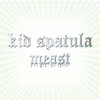 Question: What could be worse than a CD comprised entirely of boringold side-project material never before deemed worthy of release?Answer: Two CDs of boring old side-project material never before deemedworthy of release. Unfortunately, that painfully true witticism onlyscratches the surface of just how wholly disappointing the latest KidSpatula (aka µ-Ziq) album truly is. To put it even more bluntly, Meast is Mike Paradinas' Drukqs,a meandering double disc journey through the foul dregs of hisproverbial cutting room floor. Regular readers of my snidecontributions here in The Brain might recall my favorable and at timesglowing review of the last µ-Ziq album, so rest assured that thisvitriolic reaction comes from someone who regularly enjoys Paradinas'smusic. Haphazardly throwing together previously unavailable tracks from1994-1998 in a way that would make even Richard D. James blush hardlymakes for enjoyable listening, let alone reviewing. My respect forParadinas' already available work during this time period (whichincludes In Pine Effect and Lunatic Harness) made it allthe more difficult to sit through this bland, unbalanced and all-in-alluninteresting affair. A significant number of tracks sound likeincomplete sketches and abandoned ideas that should have either beenworked on further or abandoned altogether. The peppy childlike melodiesof "Trike" repeat without moving the song in any direction worthnoting, cutting off its potential less than halfway through. "LocalJogger" opens with a gorgeous mesh of synth patches that quickly takesa trip downhill into a kind of kitschy pseudo 70's TV theme songnostalgia. Though it may sound unreasonably harsh, the content of theentire second disc could have been left off without much quality beinglost, save for the opening electro-hop cut "Sad & Solid." Only onetrack managed to extract any enthusiasm on my part: "Housewife"combines synth guitar goofiness and a naughtily recorded personal adover a funky dance groove for a result that warrants repeatedlistening. Though I imagine they already own Meast, evenParadinas and Planet µ completists would do well to avoid or ignorethis dismal effort from an electronic music legend. Anyone else stillhungry for some good Paradinas work should snatch up thestill-available Rephlex reissue of the classic Tango N' Vectif.
Question: What could be worse than a CD comprised entirely of boringold side-project material never before deemed worthy of release?Answer: Two CDs of boring old side-project material never before deemedworthy of release. Unfortunately, that painfully true witticism onlyscratches the surface of just how wholly disappointing the latest KidSpatula (aka µ-Ziq) album truly is. To put it even more bluntly, Meast is Mike Paradinas' Drukqs,a meandering double disc journey through the foul dregs of hisproverbial cutting room floor. Regular readers of my snidecontributions here in The Brain might recall my favorable and at timesglowing review of the last µ-Ziq album, so rest assured that thisvitriolic reaction comes from someone who regularly enjoys Paradinas'smusic. Haphazardly throwing together previously unavailable tracks from1994-1998 in a way that would make even Richard D. James blush hardlymakes for enjoyable listening, let alone reviewing. My respect forParadinas' already available work during this time period (whichincludes In Pine Effect and Lunatic Harness) made it allthe more difficult to sit through this bland, unbalanced and all-in-alluninteresting affair. A significant number of tracks sound likeincomplete sketches and abandoned ideas that should have either beenworked on further or abandoned altogether. The peppy childlike melodiesof "Trike" repeat without moving the song in any direction worthnoting, cutting off its potential less than halfway through. "LocalJogger" opens with a gorgeous mesh of synth patches that quickly takesa trip downhill into a kind of kitschy pseudo 70's TV theme songnostalgia. Though it may sound unreasonably harsh, the content of theentire second disc could have been left off without much quality beinglost, save for the opening electro-hop cut "Sad & Solid." Only onetrack managed to extract any enthusiasm on my part: "Housewife"combines synth guitar goofiness and a naughtily recorded personal adover a funky dance groove for a result that warrants repeatedlistening. Though I imagine they already own Meast, evenParadinas and Planet µ completists would do well to avoid or ignorethis dismal effort from an electronic music legend. Anyone else stillhungry for some good Paradinas work should snatch up thestill-available Rephlex reissue of the classic Tango N' Vectif. 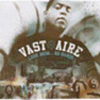 Damn you, second CD by a well-known-by-music-geeks artist. You've just reminded me of a simple but harsh truth: those debut CDs that music geeks love so much are often the product of years of music-writing experience, filtered through a trusted collaborator's sense of what is actually worth releasing. Second CDs, unfortunately, often aren't.
Damn you, second CD by a well-known-by-music-geeks artist. You've just reminded me of a simple but harsh truth: those debut CDs that music geeks love so much are often the product of years of music-writing experience, filtered through a trusted collaborator's sense of what is actually worth releasing. Second CDs, unfortunately, often aren't.
 Even if this had been released four years ago (when Uwe Zahn was on topof his game) I would not be impressed. From his earliest releases onthe Din label, Uwe Zahn created a kind of electronic music that rivaledthe beauty and multiplicity of other well-known composers of the time.His formula has been and still is simple: write great melodies, addgreat harmonies, and layer them over manifold rhythms crafted out ofcrystal, glass, and metal timbres. Whereas this formula served as thebasis for the excellent Atol Scrap and Tides before, it has somehow degraded into the elementary and overly-naïve Lilies,now. There are wonderous moments to be found in the melodies still andthe rhythms retain their deceptively simple groove, but for some reasonthey don't mesh as well as they have in the past. It's as thoughArovane has become too simple, too brief, and suddenly concerned withthe mortal. Past endeavours were not only beautiful, but they soundedtimeless; it was as though time were standing still for Arovane and hismusic. The opening "Ten Hours" negates that magical power somehow andeach of the songs following it only put Lilies in a furtherdefinite place and time. On the plus side, Zahn still sounds more incontrol of his work than any of his contemporaries do. Whether or not Ilike it, Lilies sounds like a concentrated effort, fully shapedby its creator. "Instant Gods Out of the Box" is an excellent exampleof how electronic music can still look to its roots without beingfrozen in them and without diving into the realm of pureacademic vomit. "Pink Lilies" features gorgeous vocals over a rollingand dynamic interplay between bass, percussion, and keyboard melody.It's a prime example of how to mix traditional vocals with thesynthetic sound of computer composition. Zahn's sound hasn't changeddrastically in the last few years, but his writing has slippednoticably away from the confrontational or exuberant. Maybe this isbecause it all sounds a bit derivative or maybe it's just because Lilies sounds like such an innocent and childlike record. Where Atol Scrap blew me away with its effort to escape into the stratosphere, Liliessounds disappointingly terrestrial. The closing "Good Bye Forever" onlyreminds me of my mortal body, my absurd tasks, and my inability to betruly timeless. This isn't a terrible record, but I don't find myselfreaching for it like I have for past Arovane albums. That isn't too saythat Arovane is behind his contemporaries, either: I'm still more fondof and taken by his work than I am by certain "grade-Ae" manipulators who have found it necessary to make records for engineers and professors instead of music-lovers.-
Even if this had been released four years ago (when Uwe Zahn was on topof his game) I would not be impressed. From his earliest releases onthe Din label, Uwe Zahn created a kind of electronic music that rivaledthe beauty and multiplicity of other well-known composers of the time.His formula has been and still is simple: write great melodies, addgreat harmonies, and layer them over manifold rhythms crafted out ofcrystal, glass, and metal timbres. Whereas this formula served as thebasis for the excellent Atol Scrap and Tides before, it has somehow degraded into the elementary and overly-naïve Lilies,now. There are wonderous moments to be found in the melodies still andthe rhythms retain their deceptively simple groove, but for some reasonthey don't mesh as well as they have in the past. It's as thoughArovane has become too simple, too brief, and suddenly concerned withthe mortal. Past endeavours were not only beautiful, but they soundedtimeless; it was as though time were standing still for Arovane and hismusic. The opening "Ten Hours" negates that magical power somehow andeach of the songs following it only put Lilies in a furtherdefinite place and time. On the plus side, Zahn still sounds more incontrol of his work than any of his contemporaries do. Whether or not Ilike it, Lilies sounds like a concentrated effort, fully shapedby its creator. "Instant Gods Out of the Box" is an excellent exampleof how electronic music can still look to its roots without beingfrozen in them and without diving into the realm of pureacademic vomit. "Pink Lilies" features gorgeous vocals over a rollingand dynamic interplay between bass, percussion, and keyboard melody.It's a prime example of how to mix traditional vocals with thesynthetic sound of computer composition. Zahn's sound hasn't changeddrastically in the last few years, but his writing has slippednoticably away from the confrontational or exuberant. Maybe this isbecause it all sounds a bit derivative or maybe it's just because Lilies sounds like such an innocent and childlike record. Where Atol Scrap blew me away with its effort to escape into the stratosphere, Liliessounds disappointingly terrestrial. The closing "Good Bye Forever" onlyreminds me of my mortal body, my absurd tasks, and my inability to betruly timeless. This isn't a terrible record, but I don't find myselfreaching for it like I have for past Arovane albums. That isn't too saythat Arovane is behind his contemporaries, either: I'm still more fondof and taken by his work than I am by certain "grade-Ae" manipulators who have found it necessary to make records for engineers and professors instead of music-lovers.- samples:
 The squeals and other damage that open this debut are a perfectindication of the whole experience that awaits, and the wall of soundguitars and other effects just add to the splendor inside. Hailing fromPhiladelphia, Highspire have taken their time with this record,starting recording in 2000 and just now getting around to releasing it.The extra work shows and pays off, as even though there is some fluffhere and there this is a polished thirteen tracks that use dreamscapeinfluence to its fullest extent. The band rarely gets dragged down inthe mud, instead incorporating whatever tricks they can to elevate theproceedings, and still instill variety. To shift from the expansive butmeasured first track to the acoustic guitar and keyboard violin of thesecond isn't a smooth transition, but it works somehow, especially whenthe distorted and delayed guitar make a subversive re-entrance. They'vebacked off slightly, allowing the nuances in the strumming and the fauxstrings to overtake the speakers. Words are not as important, either,seeming more as an after thought to the music, which carries themajority of the meaning through the melody. In fact, the atmospherethat is created by the different tones and background vocals alonecould carry most of these songs, not that the lead vocals are at allobtrusive. It just sounds carefully controlled, as though thecompositions were started out of improvisation, but locked down onceborn. Every note is planned, every emotion is created to illicit aprescribed response. No matter. It's still magical, and when all thepieces came together, it pulled me in and hasn't let go. -
The squeals and other damage that open this debut are a perfectindication of the whole experience that awaits, and the wall of soundguitars and other effects just add to the splendor inside. Hailing fromPhiladelphia, Highspire have taken their time with this record,starting recording in 2000 and just now getting around to releasing it.The extra work shows and pays off, as even though there is some fluffhere and there this is a polished thirteen tracks that use dreamscapeinfluence to its fullest extent. The band rarely gets dragged down inthe mud, instead incorporating whatever tricks they can to elevate theproceedings, and still instill variety. To shift from the expansive butmeasured first track to the acoustic guitar and keyboard violin of thesecond isn't a smooth transition, but it works somehow, especially whenthe distorted and delayed guitar make a subversive re-entrance. They'vebacked off slightly, allowing the nuances in the strumming and the fauxstrings to overtake the speakers. Words are not as important, either,seeming more as an after thought to the music, which carries themajority of the meaning through the melody. In fact, the atmospherethat is created by the different tones and background vocals alonecould carry most of these songs, not that the lead vocals are at allobtrusive. It just sounds carefully controlled, as though thecompositions were started out of improvisation, but locked down onceborn. Every note is planned, every emotion is created to illicit aprescribed response. No matter. It's still magical, and when all thepieces came together, it pulled me in and hasn't let go. - 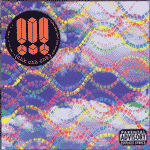 After blazing the trail for a cavalcade of indie dance-punk imitatorswith 2000's debut, the bi-coastal ensemble of !!! have only just nowreleased a follow-up. It's been a long four years, especially in termsof dance music and in the political climate, but with Louden Up Now,!!! have impressively bounced back from their recording lull with amasterful album. The title's imperative, followed by the group name'striple-shot of aggressive punctuation, conveys a forcefulness andurgency wholly appropriate to the agitated, edgy material on the album.Though the cover art displays an innocuous bright blue sky filled withoverlapping jet streams of exclamation points, the album itself isintensely political, violently so. Perhaps !!! are encouraging us tolouden our dissenting voices (or louden our dissenting music) until itfills the sky. In our current dystopian state of moralism, civilrights-backsliding and imperialist wars, it's unclear how a set ofexpletive-filled provocations to "pump up the volume and dance" canhelp, but that doesn't stop vocalist Nic Offer from trying. "U can tellthe president 2 suck my fucking dick" and "all U fucking squares bettersay your fucking prayers" are among some of the colorful metaphorsemployed in the lyrics, which shout down Bush, Blair, Giuliani,Christianity and censorship with equal zeal. The music is denselyproduced, with smoother edges than their previous work. It henceforthhas less of a live feel than the first album, with many elementssounding decidedly more synthetic. That said, I recently saw them playsome of this material live, and they pull it off quite well without theuse of a pre-programmed laptop. !!! continue to incorporate the richlydetailed dub-influenced sound of their sister band Out Hud, while stillmaintaining a jagged dissonance distinctly their own. Other than the"Giuliani" single, all of the tracks on Louden are newrecordings, with "Shit Scheisse Merde" forming the 15-minutecenterpiece, a three-part epic that travels from super-sexualizedPrince-influenced funk to the very heights of Giorgio Moroder disco tothe Dionysian depths of drugged-out club music. It's an incrediblydecadent sound, the throbbing bassline riding along to the pulse offrenzied, adrenaline-pumped, sweat-drenched human dancing. Elsewhere onthe album, Offer assures us that he doesn't "give a fuck" or "a shitabout that motherfucking shit," but I don't believe it. I believe hecares deeply, as his vituperative, politically-charged lyrics prove.!!! believe that the oncoming revolution can and will be birthed in theecstatic gyrations of dance culture, that true dissent can be nursed indarkness, and with the superlative Louden Up Now, they attempt to plant the first seed. -
After blazing the trail for a cavalcade of indie dance-punk imitatorswith 2000's debut, the bi-coastal ensemble of !!! have only just nowreleased a follow-up. It's been a long four years, especially in termsof dance music and in the political climate, but with Louden Up Now,!!! have impressively bounced back from their recording lull with amasterful album. The title's imperative, followed by the group name'striple-shot of aggressive punctuation, conveys a forcefulness andurgency wholly appropriate to the agitated, edgy material on the album.Though the cover art displays an innocuous bright blue sky filled withoverlapping jet streams of exclamation points, the album itself isintensely political, violently so. Perhaps !!! are encouraging us tolouden our dissenting voices (or louden our dissenting music) until itfills the sky. In our current dystopian state of moralism, civilrights-backsliding and imperialist wars, it's unclear how a set ofexpletive-filled provocations to "pump up the volume and dance" canhelp, but that doesn't stop vocalist Nic Offer from trying. "U can tellthe president 2 suck my fucking dick" and "all U fucking squares bettersay your fucking prayers" are among some of the colorful metaphorsemployed in the lyrics, which shout down Bush, Blair, Giuliani,Christianity and censorship with equal zeal. The music is denselyproduced, with smoother edges than their previous work. It henceforthhas less of a live feel than the first album, with many elementssounding decidedly more synthetic. That said, I recently saw them playsome of this material live, and they pull it off quite well without theuse of a pre-programmed laptop. !!! continue to incorporate the richlydetailed dub-influenced sound of their sister band Out Hud, while stillmaintaining a jagged dissonance distinctly their own. Other than the"Giuliani" single, all of the tracks on Louden are newrecordings, with "Shit Scheisse Merde" forming the 15-minutecenterpiece, a three-part epic that travels from super-sexualizedPrince-influenced funk to the very heights of Giorgio Moroder disco tothe Dionysian depths of drugged-out club music. It's an incrediblydecadent sound, the throbbing bassline riding along to the pulse offrenzied, adrenaline-pumped, sweat-drenched human dancing. Elsewhere onthe album, Offer assures us that he doesn't "give a fuck" or "a shitabout that motherfucking shit," but I don't believe it. I believe hecares deeply, as his vituperative, politically-charged lyrics prove.!!! believe that the oncoming revolution can and will be birthed in theecstatic gyrations of dance culture, that true dissent can be nursed indarkness, and with the superlative Louden Up Now, they attempt to plant the first seed. - 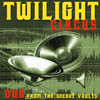 It was only seven years ago that then bassist/drummer of the Legendary Pink Dots, Ryan Moore, was premiering his Twilight Circus Dub Soundsystem in front of unsuspecting American LPD audiences. He was a long-haired joker prancing around on bass, with pocket theremin, and playing the drums along with hypnotic dub loops and saying whatever came to mind on the mic. ("Welcome to Gothic Jamaica!," "Give it up for the Monica Lewinsky chorus!," etc,...) In the time since, over ten albums of material have surfaced along with a handful of singles and collaborative projects. Moore has gone from being known for his comic antics as the primary rhythmatist of the Dots to one of the most critically acclaimed producers of authentic dub in the modern age. This recognition isn't unwarranted: none of the recordings as Twilight Circus is anything less than top-notch.
It was only seven years ago that then bassist/drummer of the Legendary Pink Dots, Ryan Moore, was premiering his Twilight Circus Dub Soundsystem in front of unsuspecting American LPD audiences. He was a long-haired joker prancing around on bass, with pocket theremin, and playing the drums along with hypnotic dub loops and saying whatever came to mind on the mic. ("Welcome to Gothic Jamaica!," "Give it up for the Monica Lewinsky chorus!," etc,...) In the time since, over ten albums of material have surfaced along with a handful of singles and collaborative projects. Moore has gone from being known for his comic antics as the primary rhythmatist of the Dots to one of the most critically acclaimed producers of authentic dub in the modern age. This recognition isn't unwarranted: none of the recordings as Twilight Circus is anything less than top-notch.
 Longtime friend and fan of the Legendary Pink Dots, Freek Kinkelaar hastastefully tied up some loose ends with this five-track collection.These tracks represent a looser, more experimental sound that the Dotswould, most likely due to their length, leave them on cassettecompilations rather than include them on their vinyl LPs. "ThePuncline" is a rarity few people have heard, first released back in1983 on a legitimate Italian cassette-only various artsits collectioncalled The Voice, in a limited edition of 300 copies, later to be collected on the unofficial Italian cassette-only LPD compilation, Fragments 1."Close Your Eyes, You Can Be a Space Captain" has appeared in a fewplaces, but this 11+ minute version was the one from 1983 originallyfound on Volume Three of the infamous Rising from the Red Sandtapes from Third Mind. "The People Tree" is a personal favorite, asthis sound-effects laden 23+ minute piece only graced side two of LPD'sTraumstadt 4. Here, loud jet engines and alien synth drips likethe more trippy interludes of some of the early Tear Garden stuff,while demented audio washes battle loudness and silence in an almosttribute-like fashion to Nurse With Wound's Homotopy To Marie,primitive electronics mimic early video games, and quirky instrumentalkeyboard melodies couldn't be mistaken for anybody other than the Dots.It irked me when side a ("Premonition 18") surfaced on Stained Glass Soma Fountainswithout "The People Tree," so this track is warmly welcomed by me tofinally be available on CD. The brief (98 second) track "March" was theonly exclusive track on the Dots on the Eyes LPD cassette-onlycompilation from 1981 so its inclusion ties up that loose end, whilethe 30 minute "Premonition 15" appeared on the Zamizdat Trade Journal,originally released in 1986, but opens the door to a couple more tracksstill unavailable. "Premonition 15" starts off with a lot of unexpectedguitar work, eventually mixing in the violin bits from "The Lovers(Part two)" along with other early LPD tunes here and there on top ofother sound effects and aural tampering. Be warned that theserecordings are not the original master recordings painstakinglyrestored to some super high fidelity, but recordings that weren't greatto begin with, and Raymond Steeg has done a find job of getting them atleast sound as good as they could have on the original tape releases.The packaging is tasteful but somewhat flimsy and needs to be cared forvery cautiously. I'm not displeased in the least. Crushed Memories is one of the gems for fans at the merch table for this tour as the disc is nearly impossible to find in any store.
Longtime friend and fan of the Legendary Pink Dots, Freek Kinkelaar hastastefully tied up some loose ends with this five-track collection.These tracks represent a looser, more experimental sound that the Dotswould, most likely due to their length, leave them on cassettecompilations rather than include them on their vinyl LPs. "ThePuncline" is a rarity few people have heard, first released back in1983 on a legitimate Italian cassette-only various artsits collectioncalled The Voice, in a limited edition of 300 copies, later to be collected on the unofficial Italian cassette-only LPD compilation, Fragments 1."Close Your Eyes, You Can Be a Space Captain" has appeared in a fewplaces, but this 11+ minute version was the one from 1983 originallyfound on Volume Three of the infamous Rising from the Red Sandtapes from Third Mind. "The People Tree" is a personal favorite, asthis sound-effects laden 23+ minute piece only graced side two of LPD'sTraumstadt 4. Here, loud jet engines and alien synth drips likethe more trippy interludes of some of the early Tear Garden stuff,while demented audio washes battle loudness and silence in an almosttribute-like fashion to Nurse With Wound's Homotopy To Marie,primitive electronics mimic early video games, and quirky instrumentalkeyboard melodies couldn't be mistaken for anybody other than the Dots.It irked me when side a ("Premonition 18") surfaced on Stained Glass Soma Fountainswithout "The People Tree," so this track is warmly welcomed by me tofinally be available on CD. The brief (98 second) track "March" was theonly exclusive track on the Dots on the Eyes LPD cassette-onlycompilation from 1981 so its inclusion ties up that loose end, whilethe 30 minute "Premonition 15" appeared on the Zamizdat Trade Journal,originally released in 1986, but opens the door to a couple more tracksstill unavailable. "Premonition 15" starts off with a lot of unexpectedguitar work, eventually mixing in the violin bits from "The Lovers(Part two)" along with other early LPD tunes here and there on top ofother sound effects and aural tampering. Be warned that theserecordings are not the original master recordings painstakinglyrestored to some super high fidelity, but recordings that weren't greatto begin with, and Raymond Steeg has done a find job of getting them atleast sound as good as they could have on the original tape releases.The packaging is tasteful but somewhat flimsy and needs to be cared forvery cautiously. I'm not displeased in the least. Crushed Memories is one of the gems for fans at the merch table for this tour as the disc is nearly impossible to find in any store.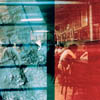 Though he probably received more recognition last year for his production work on Dean Roberts' breathtaking Be Mine Tonight,Valerio Tricoli was also busy creating one of the more substantialmusique concrète works I've heard in quite a while. The title aloneshould transmit the charm and the wayward beauty of this piece, itsquestions projecting both the violence of discovery and the resigned,rhetorical penance of shame and acceptance. Tricoli's music becomes themissing thought dots between these two inquisitives, a journey ofself-reflection and detachment. Revealingly, a three-dotted reply wasall that I, at least, could utter after sitting with the disc's40+ minutes (advertised as only 19, another of Tricoli's warpingtactics, anything but playful). The artist works outside of thehyper-lyrical or hyper-visceral styles that seem to dominate concrètepractice these days; his removed approach places the music withinmemory's shadowy domain, distanced but strangely present, like a déjàvu experience. This is not audio-surrealism per say, but something moresomber and gratingly nostalgic. The disc's first section could begin inthe room of some shaky continental hotel, slowly and secretly coloredin with disembodied hallway voices and the abrupt activity of antiquedoor latches. The voices will continue throughout the piece,contributing more to a regenerating wave of commotion than any kind offoundation, thematic or at all grounding. The music rides this wave asaboard a virtual history of meaningless conversation, essential whitenoise against which all that is individual or discernable in the piecemust be measured. There is certainly an individual, very human presencein this work, but one that seems always hidden, revealing itselfgingerly though the segmented, even lush sounds of rustling and lightknocking spaced across the whole. Tricoli also attaches some of hisinventive melodic hesitations at points during the disc, via bell tonesand steady, thin drones, shifting certain moments into sudden dramaticrelief, as if caught in a cinematic lens. Did They? Did I?stays very much outside the listening space; this music enacts a quietand impossible ambiance, capturing those subtle, telling degrees bywhich our memory is bound. It rises to shock only when cool anddeceptive recovery is within reach and reveals only for secondsanything that could be called recognizable.
Though he probably received more recognition last year for his production work on Dean Roberts' breathtaking Be Mine Tonight,Valerio Tricoli was also busy creating one of the more substantialmusique concrète works I've heard in quite a while. The title aloneshould transmit the charm and the wayward beauty of this piece, itsquestions projecting both the violence of discovery and the resigned,rhetorical penance of shame and acceptance. Tricoli's music becomes themissing thought dots between these two inquisitives, a journey ofself-reflection and detachment. Revealingly, a three-dotted reply wasall that I, at least, could utter after sitting with the disc's40+ minutes (advertised as only 19, another of Tricoli's warpingtactics, anything but playful). The artist works outside of thehyper-lyrical or hyper-visceral styles that seem to dominate concrètepractice these days; his removed approach places the music withinmemory's shadowy domain, distanced but strangely present, like a déjàvu experience. This is not audio-surrealism per say, but something moresomber and gratingly nostalgic. The disc's first section could begin inthe room of some shaky continental hotel, slowly and secretly coloredin with disembodied hallway voices and the abrupt activity of antiquedoor latches. The voices will continue throughout the piece,contributing more to a regenerating wave of commotion than any kind offoundation, thematic or at all grounding. The music rides this wave asaboard a virtual history of meaningless conversation, essential whitenoise against which all that is individual or discernable in the piecemust be measured. There is certainly an individual, very human presencein this work, but one that seems always hidden, revealing itselfgingerly though the segmented, even lush sounds of rustling and lightknocking spaced across the whole. Tricoli also attaches some of hisinventive melodic hesitations at points during the disc, via bell tonesand steady, thin drones, shifting certain moments into sudden dramaticrelief, as if caught in a cinematic lens. Did They? Did I?stays very much outside the listening space; this music enacts a quietand impossible ambiance, capturing those subtle, telling degrees bywhich our memory is bound. It rises to shock only when cool anddeceptive recovery is within reach and reveals only for secondsanything that could be called recognizable.  My first exposure to the music of Thomas Brinkmann came in 1999 when I purchased the Adria/Blindsplit remix 12" done for Force Inc. with notorious sound pirateScanner. Anyone familiar with that understated meeting of great minimaltechno minds will surely appreciate what Brinkmann has to offer withhis latest release on the quirky Max Ernst label. Although the pressrelease for Tokyo + 1 details a kind of pretentious,quasi-academic take on the album typically found in pieces thatincorporate field recordings, the actual liner notes in the booklet arestripped of any such context with only a brief mention of themultinational sound source origins, allowing casual listeners toappreciate the nine tracks here on their own terms. Considering thatthis is a Thomas Brinkmann album, a respectable level ofexperimentation and creativity is applied to both the sound art collagepieces as well as the more conventional dancier tracks, achieving anadmirable balance. "109 Competition" lumps together snippets and loopsfrom what sounds like a Tokyo arcade into a chaotic yet surprisinglyrhythmic mix of simulated laser gunfire, dance-pop video games,conversational chatter, and a Ja Rule/Ashanti duet. While that may notseem like the most "musical" stew to the uninitiated, this solidembodiment of pop culture plunderphonics will delight found sound anddifficult listening fanatics. The pleasant tech-house ditty "3 st 2Shinjuku" somewhat recalls Brinkmann's work as Soul Center though itmaintains a proud otherness with some unexpected sample of the Pokemoncharacter Pikachu. "Love Song" offers the most gratifying result ofBrinkmann's work here, with crashing waves of unruly noise combatingagainst, submitting to, and merging with a dark stompy beat that wouldreceive a warm dancefloor welcome in the bowels of a warehouse rave.While many techno-savvy geeks might currently be salivating over theBrinkmann mixed Tour De Traum compilation, the less accessible yet thoroughly satisfying Tokyo +1 should not be overlooked.
My first exposure to the music of Thomas Brinkmann came in 1999 when I purchased the Adria/Blindsplit remix 12" done for Force Inc. with notorious sound pirateScanner. Anyone familiar with that understated meeting of great minimaltechno minds will surely appreciate what Brinkmann has to offer withhis latest release on the quirky Max Ernst label. Although the pressrelease for Tokyo + 1 details a kind of pretentious,quasi-academic take on the album typically found in pieces thatincorporate field recordings, the actual liner notes in the booklet arestripped of any such context with only a brief mention of themultinational sound source origins, allowing casual listeners toappreciate the nine tracks here on their own terms. Considering thatthis is a Thomas Brinkmann album, a respectable level ofexperimentation and creativity is applied to both the sound art collagepieces as well as the more conventional dancier tracks, achieving anadmirable balance. "109 Competition" lumps together snippets and loopsfrom what sounds like a Tokyo arcade into a chaotic yet surprisinglyrhythmic mix of simulated laser gunfire, dance-pop video games,conversational chatter, and a Ja Rule/Ashanti duet. While that may notseem like the most "musical" stew to the uninitiated, this solidembodiment of pop culture plunderphonics will delight found sound anddifficult listening fanatics. The pleasant tech-house ditty "3 st 2Shinjuku" somewhat recalls Brinkmann's work as Soul Center though itmaintains a proud otherness with some unexpected sample of the Pokemoncharacter Pikachu. "Love Song" offers the most gratifying result ofBrinkmann's work here, with crashing waves of unruly noise combatingagainst, submitting to, and merging with a dark stompy beat that wouldreceive a warm dancefloor welcome in the bowels of a warehouse rave.While many techno-savvy geeks might currently be salivating over theBrinkmann mixed Tour De Traum compilation, the less accessible yet thoroughly satisfying Tokyo +1 should not be overlooked.  The New Year crafts songs that hover in the space between thoughtfulconsideration and expression. It is the music of anticipation andpatient contemplation, a flurry of intention and fervor just a quantumleap away from coalescing into a deluge of expression. This moment ofimpeccable meaning is fraught with dusky reserve, held close only toemerge as snippets of melody and song. On their second release (notincluding the Kadane brothers Bedhead experience, of which The New Yearis an evolution of), the band dwells in extremely familiar territory,their slow core roots dug deep and spread wide. The opening track, "TheEnd is Not Near" is shocking, not in that the song is a departure ordynamic leap from the band's sound, but in that it sounds frightfullylike Elliot Smith singing from the great beyond. Once this isreconciled, the song is actually a highlight of the album, a touchingtribute in sound and concept to the late songwriter and a feather inthe cap of the album. "Chinese Handcuffs" strikes a comfortable balancebetween the neat structure of the song and the shimmering elaborationof that structure through a delightfully dexterous melody. When themelody lurches upward, it pulls the whole song along with it. "Disease"builds from an aloof, meditative melody into a full-blown cascade ofclattering guitars, reverberating off the inside of the skull anddrifting into a dreamlike ambiance, with the vocals slipping justbeneath the mix and subtly etching an impression on the mind. Here, ason "Chinese Handcuffs," the distinct guitar melodies of the songselevate them beyond the simple sedate skeletons that are dulyconstructed by the laconic singing and delicate accompaniment. The NewYear drifts through their songs with an even-keeled temperment that isoccasionally too sleepy for its own good. Several tracks, like theopener, manage to explore this delicate, patient space with an elementof control and direction. Songs like "Stranger to Kindness," however,simply feel adrift, as if the component pieces are slipping away fromone another. The End is Near is a competent work with several moments of superb songcraft that is sadly connected by loose ends and slack lines.
The New Year crafts songs that hover in the space between thoughtfulconsideration and expression. It is the music of anticipation andpatient contemplation, a flurry of intention and fervor just a quantumleap away from coalescing into a deluge of expression. This moment ofimpeccable meaning is fraught with dusky reserve, held close only toemerge as snippets of melody and song. On their second release (notincluding the Kadane brothers Bedhead experience, of which The New Yearis an evolution of), the band dwells in extremely familiar territory,their slow core roots dug deep and spread wide. The opening track, "TheEnd is Not Near" is shocking, not in that the song is a departure ordynamic leap from the band's sound, but in that it sounds frightfullylike Elliot Smith singing from the great beyond. Once this isreconciled, the song is actually a highlight of the album, a touchingtribute in sound and concept to the late songwriter and a feather inthe cap of the album. "Chinese Handcuffs" strikes a comfortable balancebetween the neat structure of the song and the shimmering elaborationof that structure through a delightfully dexterous melody. When themelody lurches upward, it pulls the whole song along with it. "Disease"builds from an aloof, meditative melody into a full-blown cascade ofclattering guitars, reverberating off the inside of the skull anddrifting into a dreamlike ambiance, with the vocals slipping justbeneath the mix and subtly etching an impression on the mind. Here, ason "Chinese Handcuffs," the distinct guitar melodies of the songselevate them beyond the simple sedate skeletons that are dulyconstructed by the laconic singing and delicate accompaniment. The NewYear drifts through their songs with an even-keeled temperment that isoccasionally too sleepy for its own good. Several tracks, like theopener, manage to explore this delicate, patient space with an elementof control and direction. Songs like "Stranger to Kindness," however,simply feel adrift, as if the component pieces are slipping away fromone another. The End is Near is a competent work with several moments of superb songcraft that is sadly connected by loose ends and slack lines.  The guy who told me about this EP described the vocals as being"sweet"; at first, I figured that meant that the singer either had adistractingly pretty voice or went the hack-pop-vocalist route andtried to affect one by warbling a lot. Thankfully, that's not the case,so when the heaviosity kicks in (all of 30 seconds into the firsttrack), there aren't any stinky reminders of bad goth rockers whothought that having a girl on the mic and bloodied angels on theiralbum covers would add layers of Biblical resonance. There's just asound somewhere between overdubbed soupy goodness and the hazy,late-night tranquility of a conversation with a good friend. The friendis thoughtful, and tempo changes abound: not in a chop-waggling way,but to let the conversation drift through slo-mo headbanging territory,ratchet into an even slower gear with just a glimpse of apprehensionpreceding the thud of each beat. It lurches into motion just longenough to get the blood pumping before the instruments fall away from aquiet, nodding vocal revelation. (There are lots of pauses for breathand reflection in this conversation.) Socially engaged where otherclever bands prefer to wallow in cotton-eared eclecticism, Jucifer alsosums up what's beautiful and good about the South on "My Stars,"stacking all of the badness that the Bush administration and its warbirds can muster against a simple, pretty plucked guitar melody and adignified story of innocence and ideals being chipped away by gradeschool, forty years of ugly politics, and a stubborn refusal to standfor anything. And then it ends, and forty-six minutes of crickets leaveyou to stew in your thoughts. This is what makes close friendshipsworth as much as they are. -
The guy who told me about this EP described the vocals as being"sweet"; at first, I figured that meant that the singer either had adistractingly pretty voice or went the hack-pop-vocalist route andtried to affect one by warbling a lot. Thankfully, that's not the case,so when the heaviosity kicks in (all of 30 seconds into the firsttrack), there aren't any stinky reminders of bad goth rockers whothought that having a girl on the mic and bloodied angels on theiralbum covers would add layers of Biblical resonance. There's just asound somewhere between overdubbed soupy goodness and the hazy,late-night tranquility of a conversation with a good friend. The friendis thoughtful, and tempo changes abound: not in a chop-waggling way,but to let the conversation drift through slo-mo headbanging territory,ratchet into an even slower gear with just a glimpse of apprehensionpreceding the thud of each beat. It lurches into motion just longenough to get the blood pumping before the instruments fall away from aquiet, nodding vocal revelation. (There are lots of pauses for breathand reflection in this conversation.) Socially engaged where otherclever bands prefer to wallow in cotton-eared eclecticism, Jucifer alsosums up what's beautiful and good about the South on "My Stars,"stacking all of the badness that the Bush administration and its warbirds can muster against a simple, pretty plucked guitar melody and adignified story of innocence and ideals being chipped away by gradeschool, forty years of ugly politics, and a stubborn refusal to standfor anything. And then it ends, and forty-six minutes of crickets leaveyou to stew in your thoughts. This is what makes close friendshipsworth as much as they are. - 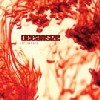 Oceansize have had some very lofty comparisons assigned to them intheir young careers, and their stunning debut full-length shows exactlywhy they're appropriate and warranted while still providing for a veryoriginal take on epic and destructive rock. Absorbing the album in itsentirety is not only recommended, it's somewhat required, as secondsinto it the sounds will prevent turning the music off or down. Theirsis a serpentine, tentacled organism, splattered with blood and full ofcolor, inviting while it can kill in an instant. It is an old but stillclever deception: lure with the quietest moment, then strike before thevictim has any idea what has happened or what the true nature or powerof the attack is. The three-guitar assault, the ethereal keyboardpassages, the tight tour-educated sound are perfect for this brand ofmurder, and Oceansize have studied their passion well. They are notvain, as they leave their grand largesse on full display, not cuttingor splicing the fat to make for a leaner listen. The first moments ofthe album reminded me of plenty of bands I have seen in small clubs,unaware of their appeal, desperate in their need to impress. Thedifference is that this band does, and when the quiet gives way for thebrutality, I was unafraid. Then the true space ride begins, and theassurances that have built up from a life of caring are decimated oneby one. "Nobody ever said they'd love you forever" and "one day allthis could be yours" are the dream and the realization of Tyler Durdenin separate verses: there is no success, there is no accomplishment,there is only the lasting disappointment. The trick is to make it soundinviting. Oceansize accomplish that and more. The roller coaster ridethey induce is to be marvelled over, that in this day and age ofworthless garbage being released day after day, there is a band that iscapable of absorbing influences and creating a music that can make theblood boil again. Where others have held that claim, and even had itquoted in songs on their record, it's been a long time since it bearedany weight. I submit that it can, and does, with this album.
Oceansize have had some very lofty comparisons assigned to them intheir young careers, and their stunning debut full-length shows exactlywhy they're appropriate and warranted while still providing for a veryoriginal take on epic and destructive rock. Absorbing the album in itsentirety is not only recommended, it's somewhat required, as secondsinto it the sounds will prevent turning the music off or down. Theirsis a serpentine, tentacled organism, splattered with blood and full ofcolor, inviting while it can kill in an instant. It is an old but stillclever deception: lure with the quietest moment, then strike before thevictim has any idea what has happened or what the true nature or powerof the attack is. The three-guitar assault, the ethereal keyboardpassages, the tight tour-educated sound are perfect for this brand ofmurder, and Oceansize have studied their passion well. They are notvain, as they leave their grand largesse on full display, not cuttingor splicing the fat to make for a leaner listen. The first moments ofthe album reminded me of plenty of bands I have seen in small clubs,unaware of their appeal, desperate in their need to impress. Thedifference is that this band does, and when the quiet gives way for thebrutality, I was unafraid. Then the true space ride begins, and theassurances that have built up from a life of caring are decimated oneby one. "Nobody ever said they'd love you forever" and "one day allthis could be yours" are the dream and the realization of Tyler Durdenin separate verses: there is no success, there is no accomplishment,there is only the lasting disappointment. The trick is to make it soundinviting. Oceansize accomplish that and more. The roller coaster ridethey induce is to be marvelled over, that in this day and age ofworthless garbage being released day after day, there is a band that iscapable of absorbing influences and creating a music that can make theblood boil again. Where others have held that claim, and even had itquoted in songs on their record, it's been a long time since it bearedany weight. I submit that it can, and does, with this album. 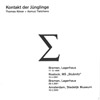 Asmus Tietchens and Thomas Köner exercise a collective marketing geniuswith their decision to end a fruitful collaborative series in brute,anticlimactic style, issuing this limited, (naturally) expensive boxmeant to house the duo's previous four discs. Such closure isespecially disappointing as it arrives just behind last year's n,Kontakt der Jünglinge's most dense and engrossing work to date, ahaunting deepspace symphony of icy gleam and relentless sprawl, one ofmy late-year favorites. For that disc the artists' very individualsensibilities seemed to work side-by-side with a precision bothbeautiful and terrible, for the potent, near-epic quality of thedislocation induced by the music. The fusion of n markedconsiderable progression from the past three discs which, whilecertainly worthwhile, never quite rose above their realities,essentially gallery-space improvs with pieces forming around anelaborate cut-and-paste of Köner's expansive drones, dark fieldcaptures, and Tietchens' industrial ambiance. Recorded live inAmsterdam in 2002, n left me with the hope that I need notshell out for another of Köner's indigestible double-disc drone opuses,or feel pressured into Die Stadt's 18-strong Tietchens reissuecampaign, the hope that I might be duly satisfied by the next Kontaktder Jünglinge disc, sure to be even better than the last. This hope isno more. If, in the very least, Frühruin is an attempt to makeup for the ascetic packaging of the first four discs, it fails.Offering little more than stiffer, glossier cardboard and differentdimensions, the box mirrors the information-less design of it intendedcontents, without a photo, a trace of supplemental artwork, or any kindof text statement from the typically silent musicians. The enclosed 3"disc likewise does little to justify such a costly shelving unit.Lacking any of n's new grandeur, the 15-min., two-track disc isa useless, uneventful, and embarrassingly short document that strugglesto rival the weaker moments of the duo's weaker releases. Forcompletists looking to consolidate the flimsy slipcases of the firstfour discs Frühruin might be an inevitability, but it is stilla shock that not even a full-length disc could have been included,especially given the prolific nature of both artists. If somehow I amwrong in assuming that this box marks the end of Köner's and Tietchens'collaboration, then it becomes an even more meaningless gesture.
Asmus Tietchens and Thomas Köner exercise a collective marketing geniuswith their decision to end a fruitful collaborative series in brute,anticlimactic style, issuing this limited, (naturally) expensive boxmeant to house the duo's previous four discs. Such closure isespecially disappointing as it arrives just behind last year's n,Kontakt der Jünglinge's most dense and engrossing work to date, ahaunting deepspace symphony of icy gleam and relentless sprawl, one ofmy late-year favorites. For that disc the artists' very individualsensibilities seemed to work side-by-side with a precision bothbeautiful and terrible, for the potent, near-epic quality of thedislocation induced by the music. The fusion of n markedconsiderable progression from the past three discs which, whilecertainly worthwhile, never quite rose above their realities,essentially gallery-space improvs with pieces forming around anelaborate cut-and-paste of Köner's expansive drones, dark fieldcaptures, and Tietchens' industrial ambiance. Recorded live inAmsterdam in 2002, n left me with the hope that I need notshell out for another of Köner's indigestible double-disc drone opuses,or feel pressured into Die Stadt's 18-strong Tietchens reissuecampaign, the hope that I might be duly satisfied by the next Kontaktder Jünglinge disc, sure to be even better than the last. This hope isno more. If, in the very least, Frühruin is an attempt to makeup for the ascetic packaging of the first four discs, it fails.Offering little more than stiffer, glossier cardboard and differentdimensions, the box mirrors the information-less design of it intendedcontents, without a photo, a trace of supplemental artwork, or any kindof text statement from the typically silent musicians. The enclosed 3"disc likewise does little to justify such a costly shelving unit.Lacking any of n's new grandeur, the 15-min., two-track disc isa useless, uneventful, and embarrassingly short document that strugglesto rival the weaker moments of the duo's weaker releases. Forcompletists looking to consolidate the flimsy slipcases of the firstfour discs Frühruin might be an inevitability, but it is stilla shock that not even a full-length disc could have been included,especially given the prolific nature of both artists. If somehow I amwrong in assuming that this box marks the end of Köner's and Tietchens'collaboration, then it becomes an even more meaningless gesture. 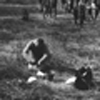 If anything is certain in the work of Rolf Julius, it's the music'spower to draw you in. This is not to say that the German sound artist'sapproach is guided by traditional associations of "intimacy" in music;his creations are too modest and open-ended for such classification.Julius' simple performance and installation pieces inflate and infusethe most basic relationships, between sound and its visual or spatialcorrespondents, with the markings of deep significance within the humanepistemological process. His works succeed by forcing us to recognizeour limits; they are self-awareness exercises, incredibly activeexperiences that give the illusion of supreme passivity. Over threedecades the artist has nudged Cage's "small sound" aesthetic away fromits delicate or ephemeral meanings towards a category of concentratedor elemental qualities, culminating with the definitive Small Musicseries. His early works present some of the more crude examples of thisdirection, less effective of course in their audio-only presentation,but well in tune with the spirit that would produce his more maturepieces. Julius' early sound components remain largely homogenousthroughout these eight works, dominated by a shrill, thereminic tonegenerator, sparse piano, and the occasional flute or plunked drum. Iget the feeling the artist invested much more time in theconceptualizing and constructing of his performance spaces than on themusic itself, which progresses on a near-improvised tack with only oneor two steady sounds in alternately tense and lazy oscillation.Imagined in their original environments, though, these pieces begin tocome alive in fascinating ways. Julius' own notes, included here,provide innocent and perfect introductions: "A number of loudspeakersplay the music for the frozen lake/I hope that the lake itself turnsinto music." (from "Concert for a Frozen Lake"). Pieces like "Music forthe Earth" and "Music for the Eyes" involve similarly straightforwardbut evocative constructions: "an old gravel path through which plantswere sprouting once more" is dotted with ten speakers, and "two smallloudspeakers with the music like spectacles on our open or closedeyes." It's easy to miss the profundity in the artist's words, but thenaïveté that claims images like a lake turning to music or the idea ofmusic itself becoming a looking-glass into the world, communicates alsothe great potential for revelation in such simple works. Julius' titles("Music for..", "Concert for..") reveal, in a humble and indirect way,the level of engagement demanded by each work. Given the artist'smethod for arranging his small sounds with an attempt to hide or fusethem with(in) a particular space, his titles could easily read "Music of..";however, the "for" guarantees recognition of the music's imposition,its artifice. Rather than dismantling the magic of the installation,such a realization becomes essential to Julius' message: that sound hasthe power to absolutely transform space, to reproduce it anew, as muchinside the head as outside. As we search the rocky ground, the lake'sedge, or the corners of a Berlin square, straining to uncover eachminiature source, we are as much drawn in and made aware of theenvironment as it is drawn out into us, filled in with every imaginedpossibility, itself invested with the drama of hearing, truly "musicfor the eyes."
If anything is certain in the work of Rolf Julius, it's the music'spower to draw you in. This is not to say that the German sound artist'sapproach is guided by traditional associations of "intimacy" in music;his creations are too modest and open-ended for such classification.Julius' simple performance and installation pieces inflate and infusethe most basic relationships, between sound and its visual or spatialcorrespondents, with the markings of deep significance within the humanepistemological process. His works succeed by forcing us to recognizeour limits; they are self-awareness exercises, incredibly activeexperiences that give the illusion of supreme passivity. Over threedecades the artist has nudged Cage's "small sound" aesthetic away fromits delicate or ephemeral meanings towards a category of concentratedor elemental qualities, culminating with the definitive Small Musicseries. His early works present some of the more crude examples of thisdirection, less effective of course in their audio-only presentation,but well in tune with the spirit that would produce his more maturepieces. Julius' early sound components remain largely homogenousthroughout these eight works, dominated by a shrill, thereminic tonegenerator, sparse piano, and the occasional flute or plunked drum. Iget the feeling the artist invested much more time in theconceptualizing and constructing of his performance spaces than on themusic itself, which progresses on a near-improvised tack with only oneor two steady sounds in alternately tense and lazy oscillation.Imagined in their original environments, though, these pieces begin tocome alive in fascinating ways. Julius' own notes, included here,provide innocent and perfect introductions: "A number of loudspeakersplay the music for the frozen lake/I hope that the lake itself turnsinto music." (from "Concert for a Frozen Lake"). Pieces like "Music forthe Earth" and "Music for the Eyes" involve similarly straightforwardbut evocative constructions: "an old gravel path through which plantswere sprouting once more" is dotted with ten speakers, and "two smallloudspeakers with the music like spectacles on our open or closedeyes." It's easy to miss the profundity in the artist's words, but thenaïveté that claims images like a lake turning to music or the idea ofmusic itself becoming a looking-glass into the world, communicates alsothe great potential for revelation in such simple works. Julius' titles("Music for..", "Concert for..") reveal, in a humble and indirect way,the level of engagement demanded by each work. Given the artist'smethod for arranging his small sounds with an attempt to hide or fusethem with(in) a particular space, his titles could easily read "Music of..";however, the "for" guarantees recognition of the music's imposition,its artifice. Rather than dismantling the magic of the installation,such a realization becomes essential to Julius' message: that sound hasthe power to absolutely transform space, to reproduce it anew, as muchinside the head as outside. As we search the rocky ground, the lake'sedge, or the corners of a Berlin square, straining to uncover eachminiature source, we are as much drawn in and made aware of theenvironment as it is drawn out into us, filled in with every imaginedpossibility, itself invested with the drama of hearing, truly "musicfor the eyes."


